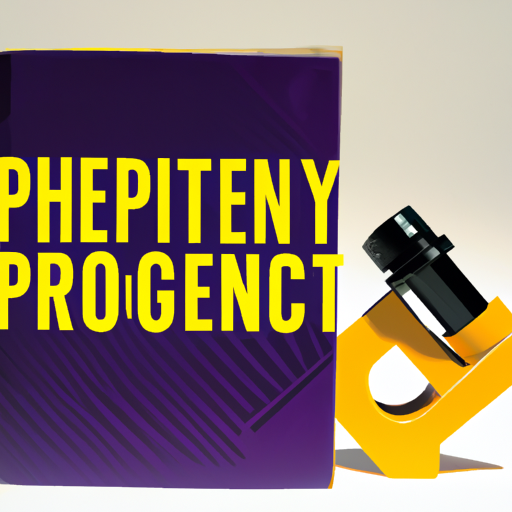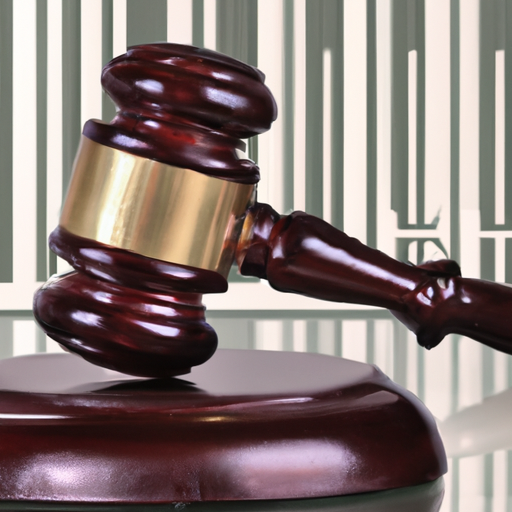In today’s fast-paced and interconnected world, intellectual property has become an increasingly vital asset for businesses. As an innovator or creator, protecting your ideas, inventions, and designs is crucial to maintaining a competitive edge in the marketplace. That’s where an intellectual property lawyer comes in. With their expertise in this specialized area of law, they can help you navigate the complex landscape of patents, trademarks, copyrights, and trade secrets. In Payson, Utah, you’ll find a trusted intellectual property lawyer who is dedicated to safeguarding your valuable intellectual assets and providing you with the legal support you need. With their extensive knowledge and experience, they can guide you through the process, ensuring that your intellectual property rights are well-protected. Whether you’re a business owner seeking to protect your brand or an individual looking to secure your creative works, contacting an intellectual property lawyer in Payson, Utah should be your first step towards preserving and defending your intellectual property rights.

What is Intellectual Property Law?
Defining Intellectual Property
Intellectual property refers to creations of the mind, such as inventions, literary and artistic works, designs, symbols, names, and images used in commerce. Intellectual property law is a branch of law that grants exclusive rights to the creators or owners of these intellectual creations. It aims to protect and regulate these intangible assets by providing legal frameworks for ownership, usage, and enforcement.
Types of Intellectual Property
There are several types of intellectual property that can be protected under the law:
1. Patents
Patents are granted to inventors for new inventions that are useful, novel, and non-obvious. Patents provide exclusive rights to the inventor for a limited period, typically 20 years, during which they can prevent others from using, making, or selling the patented invention without their permission.
2. Copyrights
Copyrights protect original works of authorship, such as literary, artistic, musical, and dramatic works. Copyrights give the creator exclusive rights to reproduce, distribute, display, and perform their works. Copyright protection generally lasts for the life of the creator plus 70 years.
3. Trademarks
Trademarks are used to protect distinctive symbols, names, or phrases that are used to identify and distinguish goods or services in the marketplace. Trademark protection helps prevent consumer confusion and unfair competition by granting exclusive rights to the trademark owner to use and protect their mark.
4. Trade Secrets
Trade secrets are confidential and valuable information that gives a business a competitive advantage. This can include formulas, processes, customer lists, and other proprietary information. Unlike patents or copyrights, trade secrets have no set time limit and are protected as long as they remain secret.
Importance of Intellectual Property Law
Intellectual property law plays a vital role in fostering innovation, creativity, and economic growth. It encourages individuals and businesses to invest time, effort, and resources in developing new ideas and products by providing a legal framework to protect their intellectual assets. Intellectual property rights incentivize inventors and creators to share their work with the public, while also providing them with the opportunity to benefit financially from their creations. Moreover, strong intellectual property protection helps maintain a fair and competitive marketplace, as it prevents unauthorized use and copying of others’ work, fostering a climate of innovation and invention.
Why Do You Need an Intellectual Property Lawyer?
Protection of Intellectual Property Rights
One of the key reasons to hire an intellectual property lawyer is to ensure the protection of your intellectual property rights. An experienced lawyer can help you identify which type of protection is most appropriate for your creation and guide you through the registration process. By securing the appropriate legal protections, you can prevent others from infringing on your rights and ensure that you are the sole benefactor of your intellectual property.
Navigating Complex Legal Processes
Intellectual property law can be complex and navigating the legal processes involved can be challenging without the help of a knowledgeable lawyer. An intellectual property lawyer can assist you in understanding the intricacies of the law, including the requirements for obtaining patents, copyrights, trademarks, or trade secret protection. They can guide you through the application process, ensuring that you fulfill all the necessary criteria and documentation.
Enforcement of Intellectual Property Rights
In the unfortunate event of intellectual property infringement, an intellectual property lawyer can be a valuable ally in enforcing your rights. They can help you gather evidence of the infringement, initiate legal actions, and represent your interests in court if necessary. Having a skilled lawyer on your side increases the chances of a successful outcome and can protect your intellectual property from unauthorized use or reproduction.
Services Offered by an Intellectual Property Lawyer
Trademark Registration and Protection
An intellectual property lawyer can assist you in the registration and protection of your trademarks. They can conduct thorough searches to ensure your chosen mark is not already in use, prepare the necessary applications, and handle any communication with the Trademark Office. By having your trademarks registered, you can establish exclusive rights to their use and prevent others from using similar marks that may cause confusion among customers.
Copyright Registration and Enforcement
A skilled intellectual property lawyer can guide you through the copyright registration process, ensuring that your creative works receive the appropriate legal protection. They can assist in preparing the necessary applications, filing them with the Copyright Office, and responding to any inquiries or challenges. In the unfortunate event of copyright infringement, an intellectual property lawyer can help enforce your rights and seek appropriate remedies.
Patent Applications and Prosecution
If you have invented something new and innovative, an intellectual property lawyer can help you navigate the complex process of obtaining a patent. They can assist in conducting prior art searches, drafting the patent application, and representing you before the Patent Office during the prosecution process. By having an experienced lawyer by your side, you can increase the chances of obtaining a strong and enforceable patent.
Trade Secrets
An intellectual property lawyer can help you protect your trade secrets by drafting comprehensive confidentiality agreements and non-disclosure agreements (NDAs). They can advise you on best practices for safeguarding your trade secrets within your organization and assist in taking legal action against anyone who violates your trade secret rights.
Licensing and Royalty Agreements
If you wish to monetize your intellectual property, an intellectual property lawyer can help you negotiate and draft licensing and royalty agreements. They can ensure that your rights are protected, and the terms of the agreement are favorable to you. With their expertise, you can maximize the value of your intellectual property assets and generate revenue through licensing arrangements.
Steps to Take When Faced with Intellectual Property Issues
Identify and Assess the Issue
The first step when faced with intellectual property issues is to identify and assess the problem. Determine whether your intellectual property rights have been infringed upon, misappropriated, or if there are any potential risks to your intellectual property assets. Conduct a thorough investigation and gather all relevant information to understand the extent of the issue.
Consult an Intellectual Property Lawyer
Once you have identified and assessed the issue, it is crucial to consult an experienced intellectual property lawyer. They can provide you with a professional analysis of the situation, evaluate the strength of your case, and guide you on the best course of action. An intellectual property lawyer will help you understand your rights and legal options, empowering you to make informed decisions.
Gathering Necessary Documentation and Evidence
To build a strong case, it is essential to gather all relevant documentation and evidence related to your intellectual property. This can include registration certificates, copies of copyrighted works, patent applications, correspondence, licensing agreements, and any evidence of infringement or unauthorized use. An intellectual property lawyer can help you identify and collect the necessary documentation to support your case.
Develop an Intellectual Property Protection Strategy
Working closely with your intellectual property lawyer, develop a strategic plan to protect and enforce your intellectual property rights. This may involve sending cease and desist letters to infringers, negotiating settlements, seeking injunctions, or initiating litigation. Your lawyer will guide you through the process and help you determine the most effective strategy based on the specifics of your case.
Enforcement and Litigation
When all other avenues have been exhausted, and infringement persists, litigation may be necessary to enforce your intellectual property rights. In such cases, your intellectual property lawyer will represent you in court, presenting your case and advocating for your rights. They will handle all aspects of the litigation process, including filing the necessary legal documents, conducting discovery, and negotiating settlements if appropriate.
Understanding Intellectual Property Infringement
What Constitutes Intellectual Property Infringement?
Intellectual property infringement refers to the unauthorized use, reproduction, distribution, or exploitation of someone else’s intellectual property without their permission. It can occur when someone copies a copyrighted work, uses a trademark without authorization, manufactures or sells patented inventions without permission, or misappropriates trade secrets. Infringement can occur either knowingly or unknowingly, and it can result in legal consequences and financial liabilities.
Proving Intellectual Property Infringement
To prove intellectual property infringement, you need to establish several elements:
-
Ownership of the intellectual property: You must demonstrate that you are the lawful owner of the intellectual property in question. This can be established through copyright registrations, patent grants, or trademark registrations.
-
Existence of the infringing act: You must show that the infringing act has occurred. This can include providing evidence of the unauthorized use, reproduction, or distribution of your intellectual property.
-
Likelihood of confusion or harm: In cases of trademarks and trade dress, you must demonstrate that the infringing use is likely to cause confusion among consumers or result in harm to your reputation or business.
Consequences of Intellectual Property Infringement
Intellectual property infringement can have significant consequences for both the infringer and the rights holder. The consequences can include:
-
Injunctions: A court may issue an injunction, ordering the infringer to cease all infringing activities. This can prevent further harm and stop the infringer from using your intellectual property.
-
Damages: If you can prove financial harm resulting from the infringement, you may be entitled to monetary damages. The damages can include actual damages, which compensate for the actual loss suffered, and statutory damages, which are set amounts defined by the law.
-
Account of profits: In some cases, the court may order the infringer to account for the profits they obtained through the unauthorized use of your intellectual property. The infringer may be required to pay over those profits to the rights holder.
-
Destruction or disposal of infringing materials: A court may order the infringing goods or materials to be destroyed or disposed of, preventing their further distribution or use.
-
Reputation damage: Intellectual property infringement can harm a business’s reputation, leading to lost customers, diminished trust, and negative publicity. This can have long-term consequences for the infringer’s business.
The Role of Intellectual Property Lawyer in Business Growth
Protection of Innovations and Ideas
An intellectual property lawyer plays a crucial role in protecting a business’s innovations and ideas. By securing patents, copyrights, trademarks, and trade secret protections, they ensure that the business’s unique and valuable creations are safeguarded from unauthorized use or exploitation. This protection fosters a culture of innovation and provides a competitive advantage, enabling the business to grow and thrive.
Maintaining Competitive Advantage
Intellectual property is often a key factor in maintaining a competitive advantage in the marketplace. Through patents, trademarks, and trade secrets, a business can differentiate itself from competitors, protect its unique offerings, and position itself as a leader in the industry. An intellectual property lawyer helps identify and protect these competitive advantages, ensuring that the business remains ahead of the curve.
Maximizing Intellectual Property Assets
An intellectual property lawyer can assist a business in maximizing the value of its intellectual property assets. They can help identify opportunities for licensing or collaboration, negotiate favorable licensing agreements, and help monetize the intellectual property through strategic partnerships. By leveraging their expertise, businesses can generate additional revenue streams and enhance their overall growth prospects.
Negotiating Favorable Licensing Agreements
Licensing agreements are a common way for businesses to monetize their intellectual property. An intellectual property lawyer can negotiate and draft licensing agreements on behalf of the business, ensuring that the terms are favorable and protect the business’s interests. They can help define the scope of the license, royalty rates, exclusivity provisions, and other key terms, ensuring that the business receives fair compensation for its intellectual property.
Mitigating Risks and Ensuring Compliance
Intellectual property lawyers play a critical role in mitigating risks and ensuring compliance with intellectual property laws and regulations. They can conduct IP audits to identify potential vulnerabilities, advise on best practices for trade secret protection, and develop internal policies and procedures to safeguard intellectual property assets. By proactively managing risks and ensuring compliance, businesses can avoid legal disputes and costly infringements.

Intellectual Property Law vs. Business Law
Differences in Focus and Expertise
While both intellectual property law and business law are important aspects of legal practice, they differ in their focus and expertise. Intellectual property law specifically deals with the protection and enforcement of intellectual property rights, whereas business law encompasses a broader range of legal issues related to the operation, governance, and transactions of businesses. Intellectual property lawyers specialize in the complex legal frameworks surrounding patents, copyrights, trademarks, and trade secrets, while business lawyers offer a more comprehensive understanding of business formation, contracts, taxation, and regulatory compliance.
Overlap and Interconnection
Despite their differences, intellectual property law and business law often overlap and interconnect. Intellectual property assets are integral components of many businesses, and understanding how to protect and leverage these assets is essential to the success of a business. Business lawyers often collaborate with intellectual property lawyers to guide businesses on intellectual property-related matters within the broader context of their legal needs. This collaboration ensures a holistic legal approach to supporting businesses in maximizing their intellectual property assets while navigating the intricacies of business law.
Importance of Collaboration
Collaboration between intellectual property lawyers and business lawyers is crucial to address the legal needs of businesses effectively. Intellectual property lawyers bring in-depth knowledge of intellectual property rights and strategies, while business lawyers provide a broader perspective on the overall legal landscape in which businesses operate. By working together, these professionals can offer comprehensive legal advice, tailored to the unique needs and goals of businesses, ensuring that all legal aspects are considered and addressed.
How to Choose the Right Intellectual Property Lawyer
Experience and Expertise in Intellectual Property Law
When choosing an intellectual property lawyer, it is important to consider their experience and expertise in intellectual property law. Look for lawyers who specialize in this field and have a track record of handling cases similar to yours. A knowledgeable and experienced lawyer will have the necessary expertise to navigate complex intellectual property issues and provide effective legal representation.
Demonstrated Success in Intellectual Property Cases
Review the lawyer’s track record and inquire about their success in handling intellectual property cases. Ask for references or testimonials from past clients to gauge their effectiveness in protecting intellectual property rights and achieving favorable outcomes. A lawyer with a history of successful cases can provide confidence that they have the skills and knowledge to handle your intellectual property matters effectively.
Reputation and Client Reviews
Consider the reputation of the intellectual property lawyer and their firm in the legal community. Research online for client reviews, testimonials, or any disciplinary actions taken against the lawyer. Positive reviews and a strong reputation indicate a high level of professionalism and client satisfaction.
Compatibility and Communication
The right intellectual property lawyer should be someone with whom you feel comfortable working with. During an initial consultation, assess their communication style, responsiveness, and ability to explain complex legal concepts in a clear and understandable manner. Good communication and a positive working relationship are essential for effective collaboration and successful resolution of your intellectual property matters.
Cost and Fee Structure
Discuss the lawyer’s fee structure and ensure that it aligns with your budget and expectations. Intellectual property matters can vary in complexity, and associated costs may also differ. It is important to have a clear understanding of the lawyer’s billing practices, including hourly rates, flat fees, or contingency fees, and any additional costs that may be involved. Transparency about costs will help avoid any financial surprises down the line.

Frequently Asked Questions about Intellectual Property Law
What is the difference between a patent and a copyright?
A patent protects inventions, granting the inventor exclusive rights to prevent others from making, using, or selling the invention without permission. On the other hand, a copyright protects original works of authorship, such as literature, music, art, or software code. Copyright grants the creator exclusive rights to reproduce, distribute, display, and perform the work.
How long does an intellectual property protection last?
The duration of intellectual property protection varies depending on the type of protection. Patents generally last for 20 years from the date of filing. Copyright protection typically lasts for the life of the creator plus 70 years. Trademark protection can last indefinitely, as long as the mark continues to be used and remains distinctive. Trade secrets have no specific duration and remain protected as long as they are kept confidential.
Do I need to register my trademark?
While registration of a trademark is not mandatory, it is highly recommended. By registering your trademark with the appropriate intellectual property office, you gain several important benefits. Registration provides constructive notice of your claim to the mark, grants the exclusive right to use the mark nationwide, and allows you to bring legal action against infringers. Additionally, registration helps establish a stronger case in court if you need to enforce your trademark rights.
What can be considered a trade secret?
A trade secret can be any valuable information that is not publicly known and gives a business a competitive advantage. This can include formulas, manufacturing processes, customer lists, marketing strategies, or financial data. To be considered a trade secret, the information must be treated as confidential and provide economic value to the business.
What are the steps involved in filing a patent?
Filing a patent involves several steps, including:
- Conducting a prior art search to ensure the invention is novel and non-obvious.
- Drafting a patent application that describes the invention in detail, including drawings if necessary.
- Filing the patent application with the Patent Office and paying the required fees.
- Engaging in the prosecution process, which involves responding to office actions from the Patent Office and potential amendments to the application.
- If the application is approved, paying maintenance fees to keep the patent in force for the designated period.
Conclusion
Protecting your intellectual property is essential for the success and growth of your business. By understanding the importance of intellectual property law and engaging the services of an experienced intellectual property lawyer, you can safeguard your creations, maximize their value, and mitigate legal risks. Don’t delay in taking action to protect your intellectual property assets. Contact our experienced intellectual property lawyer in Payson, Utah, today to schedule a consultation and ensure that your intellectual property is in capable hands.
Contact our Intellectual Property Lawyer in Payson, Utah























































